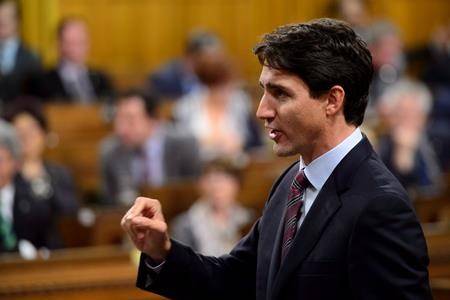The Trudeau Liberals have agreed to increase the amount of money political parties can spend in the run-up to a federal election — a price they’ve paid to end Conservative stalling of an omnibus bill to reform the country’s election laws.
As part of Bill C-76, the government initially proposed to cap party spending on advertising at $1.5 million during what’s known as the pre-writ period — from June 30 in an election year to the day the election is actually called.
That measure raised the ire of the deep-pocketed Conservatives, who alleged it was aimed at reducing their financial advantage and rigging the election in the Liberals’ favour. They’ve been holding up progress of the bill at the procedure and House affairs committee, where it’s been stalled since June.
The government broke the impasse Thursday by agreeing to increase the pre-writ spending limit to $2 million per party. Conservative members then agreed to allow the committee to proceed to clause-by-clause study of the bill, including consideration of some 300 proposed amendments, on Oct. 15.
Democratic Institutions Minister Karina Gould said she’s hopeful the bill can now be passed by both the House of Commons and Senate by the end of the year — the deadline Elections Canada has said must be met if the bill’s many measures are to be implemented in time for the next election, scheduled for Oct. 21, 2019.
“It’s time to get moving on it,” she said in an interview.
Spending during election campaigns has long been strictly limited but there have never been restrictions on party spending in the run-up to elections. But the advent of a fixed date for federal elections — the third Monday of October, every four years — has effectively turned the pre-writ period into an unregulated Wild West, with parties ramping up their spending weeks or months before the election is actually called.
C-76 would also impose a pre-writ spending limit on advocacy groups or so-called third parties of $10,000 per electoral district, to a maximum of $1 million.
“This would be the first time that we are putting limits on the pre-election period,” Gould said, adding that the dollar amount can be re-evaluated after the 2019 election.
“I think it is important that we have this limit in place … Canadians don’t want to be in a perpetual election cycle.”
Because the bill affects all political parties, Gould said it’s important to work with opposition parties as much as possible to achieve some consensus. However, there’s no guarantee the Conservatives will support the bill, even with Thursday’s concession.
In addition to the change on pre-writ spending, the government is proposing other amendments to beef up measures in the bill aimed at preventing foreign interference in Canadian elections.
When the bill was introduced last spring, the government proposed only to prohibit the use of foreign money by third parties during the pre-writ period and during the official campaign period. It is now proposing a blanket ban on the use of foreign funds at any time for the purpose of supporting or opposing a political party or candidate.
It is also proposing another amendment that would require online platforms, such as Facebook and Google, to create a registry of all digital advertisements placed by political parties or third parties during the pre-writ and writ periods of a campaign and to ensure they remain visible to the public for two years.
The bill represents a first stab at grappling with the spectre of social media being abused by bad actors — foreign or domestic — to manipulate the results of an election, exacerbate societal divisions, amplify hate messages or instil distrust in the electoral system. It comes in the wake of scandal over Russian interference in the last American presidential contest and the misuse of personal information of millions of Facebook users during the United Kingdom’s Brexit campaign.
It would also reverse a number of changes wrought by the previous Conservative administration’s widely denounced Fair Elections Act, including restoring the use of voter information cards as a valid form of identification and scrapping measures that critics argued were designed to benefit the Conservatives with their overflowing war chests.
Among other things, C-76 sets a maximum limit of 50 days for an election campaign and does away with the Conservative-introduced measure that allowed parties to increase their spending limits for every day a campaign exceeded the minimum 36 days.
Joan Bryden , The Canadian Press



